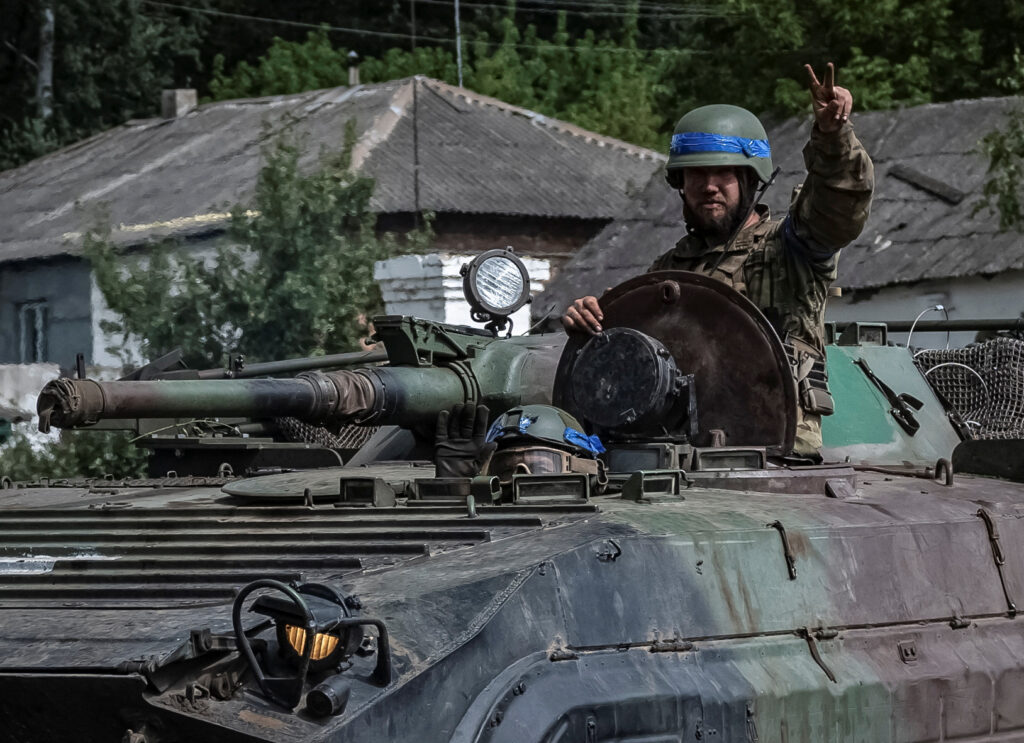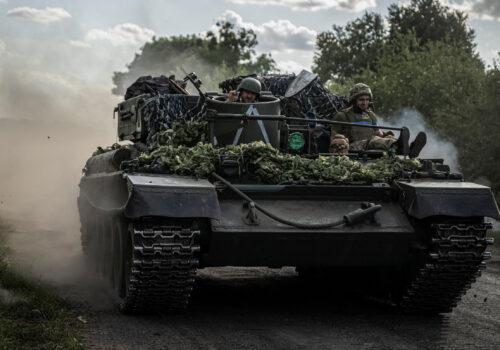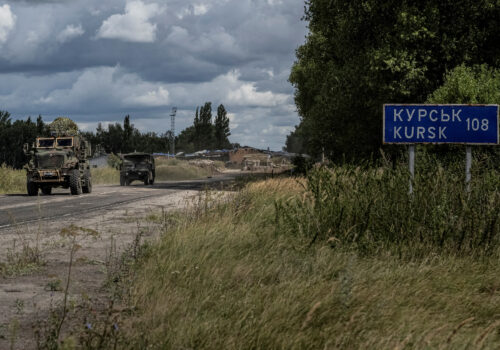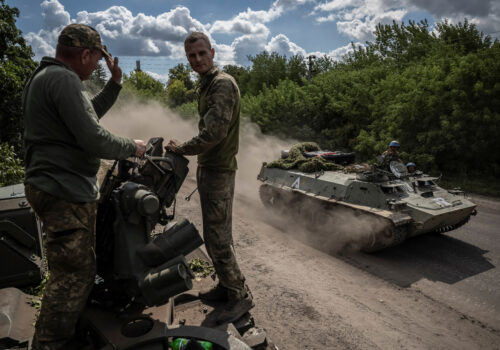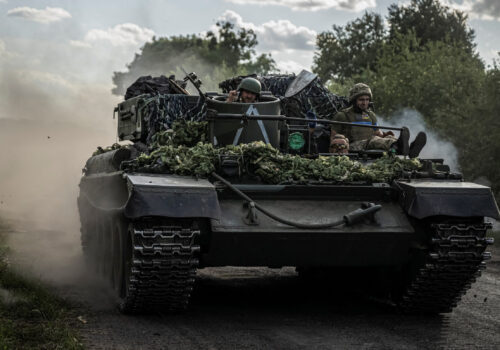
There can be no European peace without Ukrainian victory
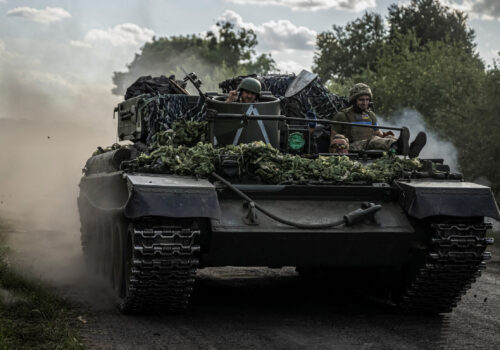
Russia’s full-scale invasion of Ukraine has evolved into the largest European war since World War II, but two and a half years on, many are still struggling to grasp exactly what is at stake. Instead, we continue to hear calls for some kind of compromise with the Kremlin, while the international community refuses to hold Russians accountable for their crimes.
This lack of consequences is fueling a growing sense of impunity that can be seen in Russia’s actions. On the eve of the NATO Summit in July, Russia bombed Ukraine’s largest children’s hospital in broad daylight. Empowered by the absence of any discernible international response to the 2023 destruction of Kakhovka Dam, Russia targeted Kyiv’s hydroelectric dam in late August.
Since spring 2024, Russia has destroyed more than half of Ukraine’s energy generation capacity in a clear and calculated attempt to make the country unlivable. Throughout the sweltering summer months, Ukrainians have faced rolling blackouts, with electricity often only available for several hours per day. The Kremlin is hoping things will deteriorate further during the winter season, and intends to freeze Ukrainians into submission.
Despite Russia’s extensive list of crimes in Ukraine, many international voices continue to call for negotiations. These appeals are often accompanied by arguments claiming that the war is “unwinnable” for Ukraine, or suggestions that the West can promote peace simply by ending all military support to Kyiv. Such thinking is dangerously delusional.
Russian officials and Kremlin propagandists make no secret of their plans to destroy the Ukrainian state and nation. In fact, they often say so explicitly. Former Russian President Dmitry Medvedev spelled out Moscow’s intentions in July when he stated that Russia would seek to occupy any “remaining Ukrainian lands,” even if Ukrainian President Volodymyr Zelenskyy agreed to a ceasefire deal.
Stay updated
As the world watches the Russian invasion of Ukraine unfold, UkraineAlert delivers the best Atlantic Council expert insight and analysis on Ukraine twice a week directly to your inbox.
When Western commentators and politicians casually discuss ceding Ukrainian territory to Russia, they typically overlook the fact that the regions in question are home to millions of ordinary Ukrainians. Abandoning these people to indefinite Russian occupation means condemning them to the threat of kidnap, torture, disappearance, and death. Russians will continue erasing all aspects of Ukrainian identity wherever they can.
We have all seen the photos of the dead bodies in Bucha, the mass graves in the forests of Izyum, and the torture cells of Kupiansk. These are not isolated incidents or excesses. They are part of an horrific pattern that is being repeated throughout the areas of Ukraine under Kremlin control. It is grotesque to suggest that legitimizing this occupation will bring peace. And yet that is exactly what many international commentators advocate.
Ukrainians are under no illusions regarding Russia’s intentions. We have learned many hard lessons over the past decade, and have come to understand that modern Russia is fully committed to wiping Ukraine off the map.
In 2014, we lived through the occupation of Crimea and the Russian invasion of eastern Ukraine, and saw how the international community failed to punish Russia in any meaningful way. We witnessed the cynicism of the Minsk Accords, and watched as Russia openly prepared the ground for full-scale genocide.
It appears obvious to Ukrainians that Russia is now seeking breathing space to consolidate its territorial gains and rearm before completing the conquest of Ukraine. Why else would the Kremlin be so insistent that any peace deal must include Ukraine’s international isolation and comprehensive disarmament?
Eurasia Center events
It is vital to understand that the threat posed by Russia is evolving and extends far beyond Ukraine. Back in 2014, Russia was acting alone. Today, the Kremlin has managed to create a formidable coalition of authoritarian states that share Moscow’s goal of subverting the rules-based world order and replacing it with a lawless alternative governed by the schoolyard principle that “might is right.” The only way to prevent this axis of autocracies from becoming even more powerful is by defeating Russia in Ukraine.
Some say Russia cannot pose any real threat to Europe as the Russian army is fully engaged in the war against Ukraine. This gravely underestimates the scale of Russia’s ambitions. Putin genuinely believes he is on a sacred mission to correct the injustices of the Soviet collapse. He has repeatedly declared that he is reclaiming “historically Russian lands.” These territorial claims extend far beyond Ukraine.
Putin is now being emboldened by repeated signs of Western weakness and a lack of resolve among Ukraine’s partners. If Russia is handed victory in Ukraine, it is absurd to think they will simply stop.
Russia is already intensifying its hybrid war against the West. In recent months, details have emerged of a Russian plot to assassinate the CEO of a leading German defense manufacturer. There are also regular reports of sabotage campaigns, GPS jamming, attempted arson, cyber attacks, election meddling, and strategic corruption.
As Russia’s full-scale invasion passes the two-and-a-half year mark, it is time to acknowledge that supporting Ukraine is not an act of solidarity or charity. In reality, providing Ukraine with the military aid it requires to defeat Russia is the most effective way to prevent further escalation and avoid an even bigger war in the near future.
Kyiv’s wish list is well known. Ukraine needs more air defense systems, long-range missiles, and fighter jets. Crucially, Ukraine’s partners must lift all restructions on the use of Western weapons against military targets inside Russia and agree to shoot down Russian drones and missiles close to their airspace. Smart allies should be looking to boost Ukraine’s ability to defend itself by investing in the country’s rapidly expanding defense sector, while also bankrupting the Russian war machine by tightening sanctions on the country’s oil and gas industry.
Above all, we need to see a fundamental shift in international attitudes toward the war. The future of the world is being decided in Ukraine. It is not enough for countries to say they will stand with Ukraine “for as long as it takes.” Instead, Ukraine’s partners must define their position as “whatever it takes for victory,” and must act accordingly.
Olena Halushka is a board member at AntAC and co-founder of the International Center for Ukrainian Victory. This article is an adapted version of an opinion piece that was first published by the Norwegian newspaper Aftenposten.
Further reading
The views expressed in UkraineAlert are solely those of the authors and do not necessarily reflect the views of the Atlantic Council, its staff, or its supporters.

The Eurasia Center’s mission is to enhance transatlantic cooperation in promoting stability, democratic values and prosperity in Eurasia, from Eastern Europe and Turkey in the West to the Caucasus, Russia and Central Asia in the East.
Follow us on social media
and support our work
Image: Ukrainian servicemen ride a BMP-1 infantry fighting vehicle, amid Russia’s attack on Ukraine, near the Russian border in Sumy region, Ukraine. August 10, 2024. (REUTERS/Viacheslav Ratynskyi)
